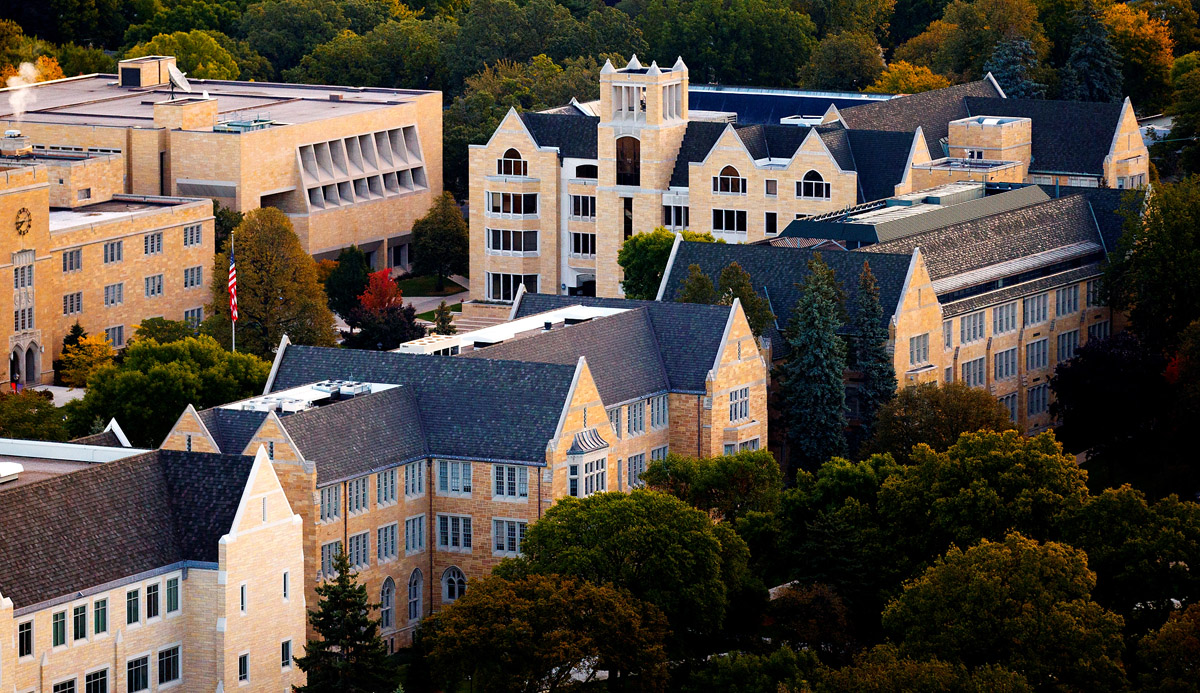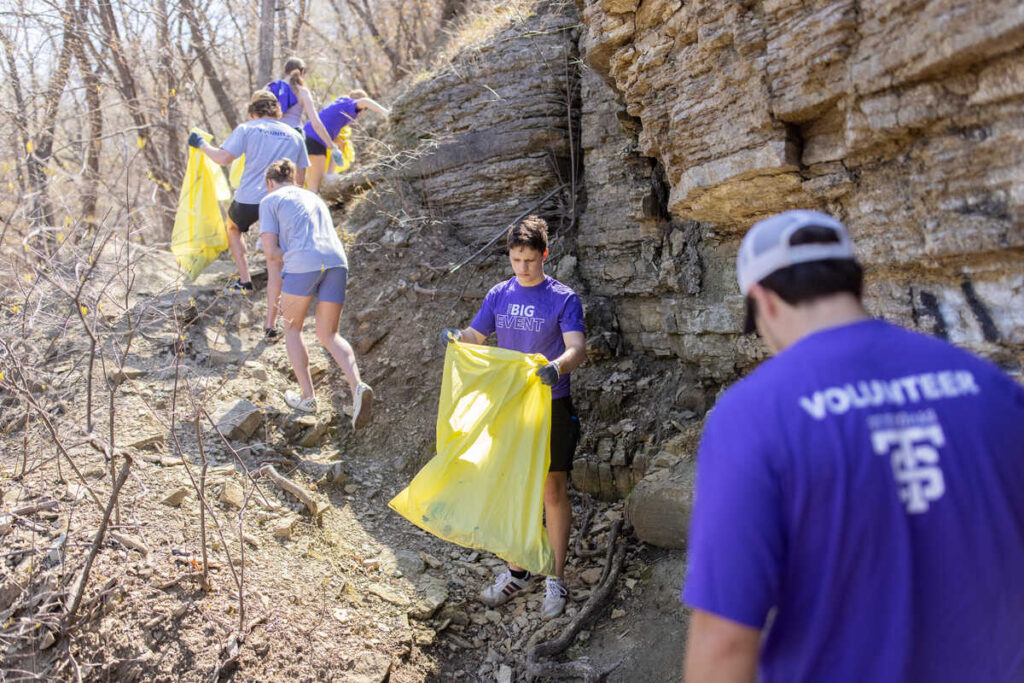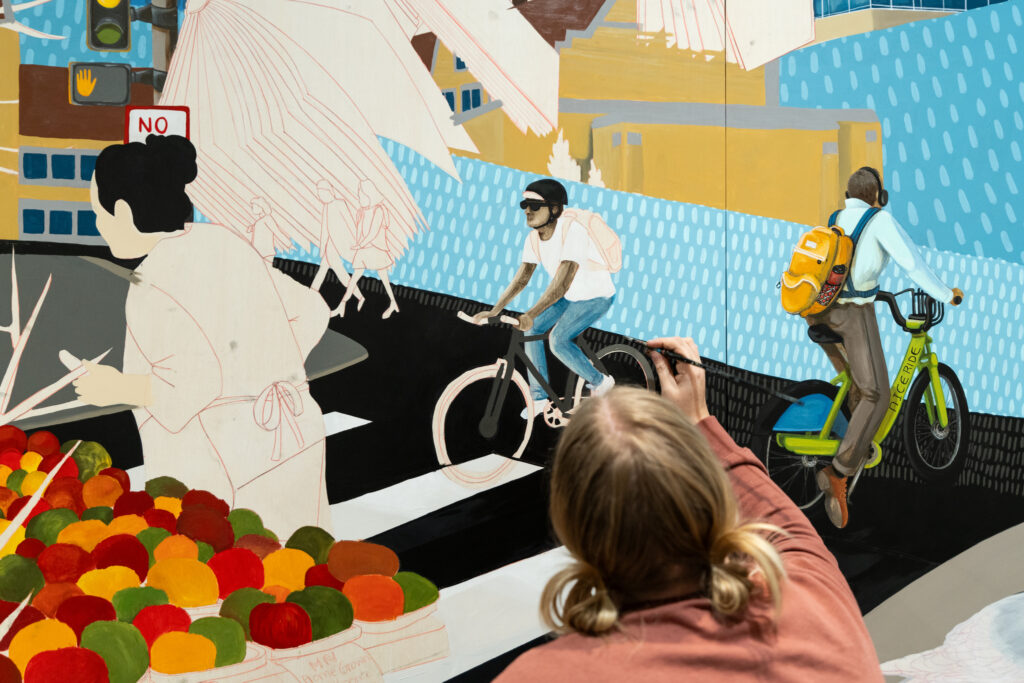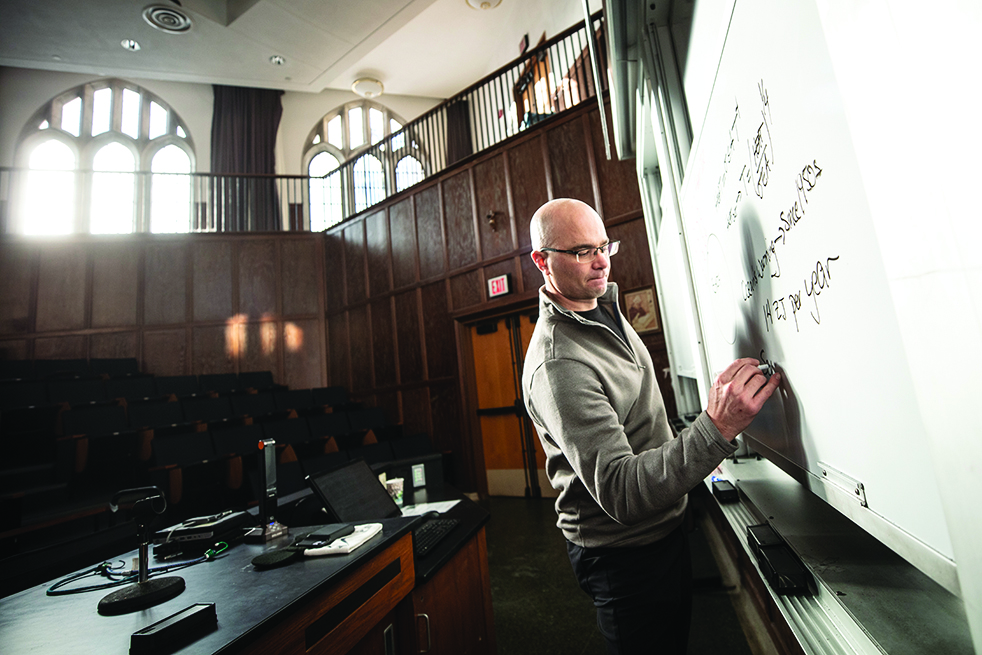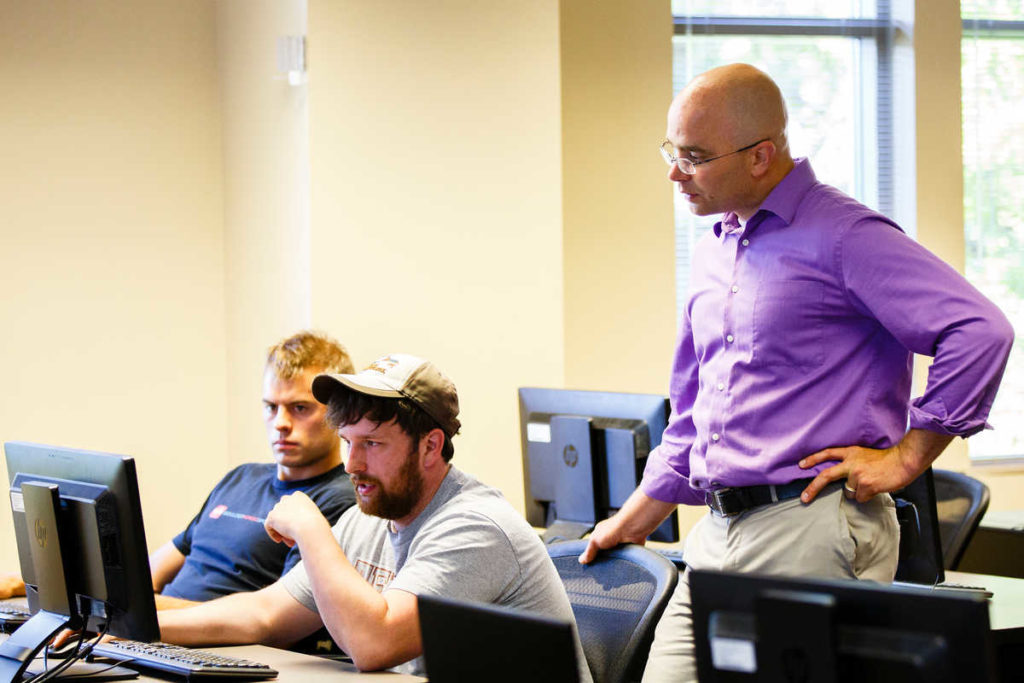For the first time, St. Thomas will be home to Living Learning Communities in fall 2015.
Four “LLCs”– centered on programs of sustainability, wellness, Aquinas Scholars and paired courses – will have upward of two dozen freshmen each, who will intertwine their academic and co-curricular worlds in ways St. Thomas has never seen.
“The goal is to get students comfortable, engaged and staying at St. Thomas to create one meaningful experience instead of three or four or five separate ones,” said Aaron Macke, director of residence life.
Each student in the four programs will live in the same dorm halls as his or her fellow members, and will share a wide range of academic, social and community-based elements alongside his or her overall educational experience. While St. Thomas has had many programs in its past the combine both students’ academic and co-curricular experiences in some way, this is the first time formal programs will be on campus to bring them together as one.
“That’s the really exciting part, that we see students come to our campus and immediately have a connection,” said Mary Ann Ryan, associate vice president for student affairs. “Their education will be so rich because it extends beyond to be part of their life on campus. It’s not just the parts where they’re in the classroom or the library; it’s part of all of it.”
Building on long tradition of sustainability
Sustainability was the first of the four programs to come together. Part of its appeal is the extensive work that already has taken place on campus. Some 10 years ago former President Dennis Dease dramatically increased the school’s focus on sustainability, highlighted in 2008 by a pledge to go carbon neutral by 2035. The Campus Sustainability Fund also was established, awarding resources to student, faculty and staff projects aimed at bringing the school toward more sustainable practices.
“This Living Learning Community is a way to highlight what we already have in place,” psychology professor Elise Amel said. “This is not new stuff to us, and it will be nicely packaged and put together.”
Amel and geography professor Paul Lorah have been at the center of the program’s development process from the beginning.
“Our immediate response was, ‘Yes, of course. This would be great,’” Amel said. “It’s a gift, really. For something like sustainability, it’s an interdisciplinary problem-solving opportunity. There’s no one discipline that can fix it.”
Twenty-four students will live in Brady and Dowling residence halls; share two sets of paired courses in the fall and spring semesters; attend several campus events and off-campus, sustainability-focused activities; and take part in community-based mentorship and research.
“It’s a topic they’re very passionate about,” Macke said. “The hope is that there’s a perspective student base out there that is interested and excited too. We want passionate and excited kids coming into this to be engaged.”
Growing more LLCs
As development of the sustainability LLC continued, several more opportunities arose to expand St. Thomas’ offerings to four separate LLCs. One of those will be based around wellness through a partnership with the Health and Human Performance (HHP) Department and St. Thomas’ Wellness Center. Freshman students – living in Dowling and Ireland halls – will take part in a semester-long lab with upperclassman HHP students, offering practical experience and mentorship opportunities not formerly available.
“We’re really excited about this,” Ryan said. “We’ll do work on sleep patterns, which is so important for freshmen. These wellness communities will be really focused on a holistic approach.”
Another LLC growing from already-established roots at St. Thomas will be with Aquinas Scholars, the university’s undergraduate honors program. Students accepted into that program now will have the chance to also take part in the LLC in either Brady or Dowling halls, as well as in several co-curricular events and activities.
Finally, paired courses – which have a strong history at St. Thomas and have been shown to increase retention rates – also will have an LLC next fall. Students will be enrolled in either computer science 130 and math 113, or sociology 100 and philosophy 115, and share residence in Murray Hall.
“We’ll create a computer lab for them there, create a lot of programs around career development, which is right there in the building,” Ryan said. “There are classrooms there. It’s an ideal location for this notion of combining the curricular and non-curricular.”
Both the paired courses and wellness LLCs are considered pilot programs at this point, and all four should offer great feedback on the value of their experiences for freshmen.
“We’re feeling very optimistic about the data we’re going to collect and the outcomes we’re going to see with students being involved with these LLCs,” Macke said.
